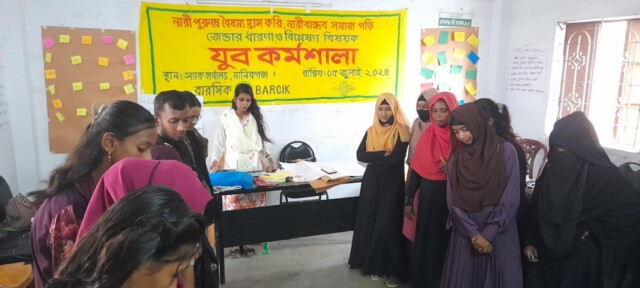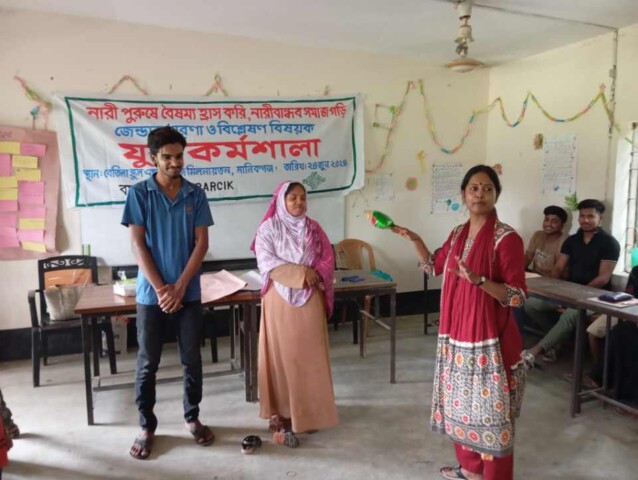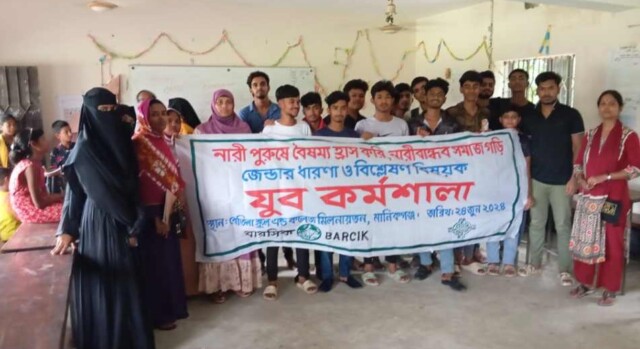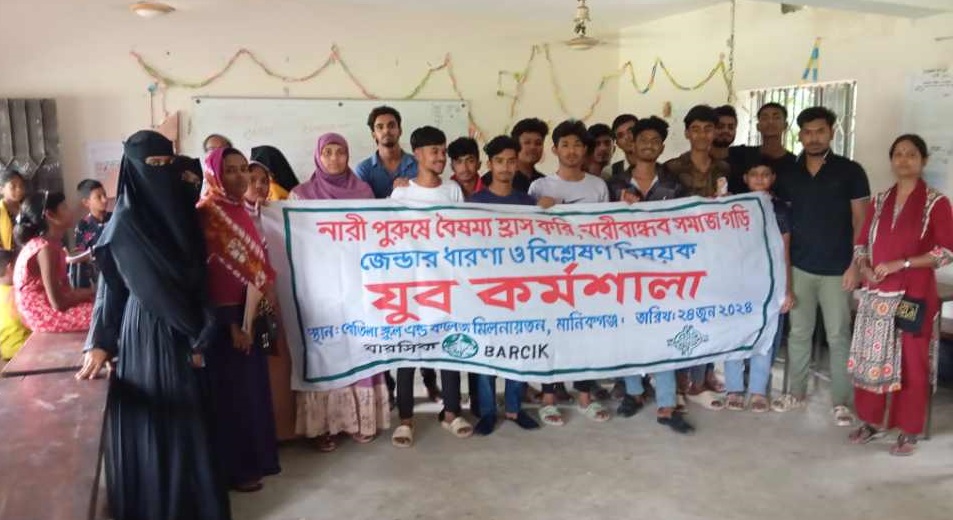BARCIK’s Initiative on Gender Awareness and Analysis at the Community Level
Md. Nazrul Islam from Manikganj
BARCIK organized 24 workshops on gender awareness and analysis, focusing on community needs and engaging voluntary youths recently in Manikgonj. These workshops were held in different regions: 11 in Manikganj Sadar, 8 in Singair, 3 in Harirampur, and 2 in Ghior sub-districts. The youth-led workshop activity is still being organized in different parts of the districts engaging students both female and male. However, so far, a total of 600 participants actively engaged in these completed workshops, including 350 girls and 250 boys. Through games and the use of various materials, participants were involved in planning on how gender roles in families, society, and the state can be transformed based on their expectations.

In line with its project goals, BARCIK believes that if cultural practices and the characteristics of a pluralistic society are nurtured, violence against women will not occur on such a large scale. Hence, BARCIK is working to form an active group of “change agents” composed of men, women, youth (female and male), and people from various social classes. These “change agents,” particularly the youth, will work to promote a democratic culture and practices in society. Through their efforts, women’s empowerment will be established, and the rate of violence against women will decrease.
Most of the participants were from grades nine to ten and higher secondary levels who participated in the workshops. The number of higher education students was relatively low. Many students were less familiar with the social concept of gender outside the traditional textbook definitions. Through the workshop, they realized that gender generally refers to the social relationships between men and women. While men and women are born with physical differences, society and culture impose various meanings on these differences, which leads to the construction of gender. Thus, gender is a form of social construction. While physical differences are biological and cannot be changed, it is possible to eliminate social and cultural differences to create a more women-friendly world.

Another important topic in this workshop was how the youth can help prevent child marriage. After discussions from both sides, they understood that a minor in marriage refers to any male who has not reached 21 years of age or any female who has not reached 18 years of age. A marriage where either party is underage is considered a child marriage. Participating in the workshops and attending different learning sessions from the facilitators the participants realize their roles in preventing early marriage and confronting women violence.
The participants made several recommendations for preventing child marriage. They believe that to stop child marriage, adolescent girls must commit to continuing their education. They must also be well-informed about the harmful effects of child marriage. Additionally, they should raise awareness among parents and guardians about these harmful effects. Someone should be identified or created who can talk to guardians against child marriage and explain its negative impacts and legal consequences. The participants feel it is important to express to the family, “I will suffer if I am married off early.” They also need to learn to say “no.”

Additionally, the participants mentioned that if they come to know a child marriage is being held, they will collectively visit the friend’s house. If that does not work, they will personally call government helplines like 109 or 999. Furthermore, they said that they must continue to organize and raise awareness through their collective efforts.

